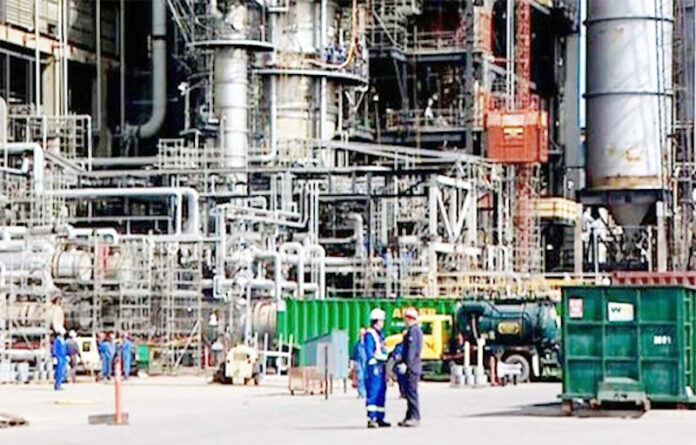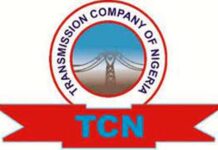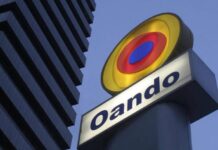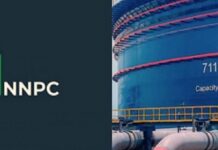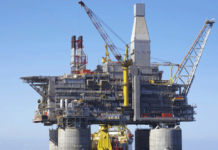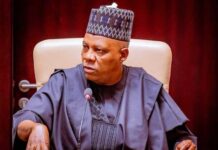*Facility to generate $25bn revenue annually
*Africa’s richest man says it’s shameful Nigeria imports fuels
Emmanuel Addeh in Abuja with agency report
The $20 billion Dangote Refinery, which is expected to transform the continent’s biggest economy, will fully come online with the refining of 650, 000 barrels per day by the end of 2024, its owner, Aliko Dangote, has said.
Dangote, whose personal wealth is estimated by Forbes at $10.5 billion, told the Financial Times that by next month the first cargo of about 6 million barrels will be ready for refining.
“Dangote, 66, said he believed the refinery could reach its capacity of 650,000 barrels a day by the end of 2024,” the report said, adding that “We’re starting with 350,000 barrels a day.”
At full production, the refinery, the world’s largest “single train” facility with just one distillation unit, could save Nigeria billions in foreign exchange currently spent on imported fuel.
It was “shameful”, Dangote said, that Nigeria, a major oil producer for more than 50 years, could not refine its own crude in anything like sufficient quantity.
Head of the Africa practice at political risk consultancy, the Eurasia Group, Amaka Anku, said the refinery was “a massive, complicated undertaking”.
In a country where most business people looked for short-term profits, she added, it was a blessing “that we have someone like Dangote who is willing to spend billions of his own money on long-term projects”.
Dangote conceded there were times when he thought the massive project – long delayed and about $8 billion over budget – might jeopardise his business empire.
“The challenges that we faced, I don’t know whether other people can face these challenges and even survive,” he said. “It’s either we sink or we sail through. And we thank the Almighty that at least we’ve arrived at the destination,” he added.
In the interview, Dangote complained that rivals were carping because they did not understand what it took to run a business that was the country’s biggest private-sector employer and its biggest taxpayer.
“Sometimes when people talk about us, Dangote, it’s like the government is holding everybody down and allowing us alone to fly,” he stated.
He did not want to discuss in detail a tussle over the supply of crude with the Nigerian National Petroleum Company Limited (NNPC), which owns 20 per cent of the refinery after a $2.76 billion equity purchase in 2021.
Nigeria produces about 1.4 million barrels of oil a day, well short of its Organisation of Petroleum Exporting Countries (OPEC) quota of 1.74 million barrels, with much pre-sold in forward contracts.
“Let’s not have the blame game here,” he said of NNPC’s reported difficulties in meeting the refinery’s requirements. “We have resolved all the issues of supply,” he stressed.
Dangote rejected suggestions NNPC was playing hardball to negotiate a bigger share of the refinery, which he said would generate revenue of $25 billion a year at full capacity. “I don’t think NNPC needs to buy more shares. I think they’re okay with what we’ve given them,” he added.
The refinery would eventually be floated as a separate company, he said, initially on the Lagos stock exchange.
To build the massive project on 2,500 hectares of swampland, Dangote had to construct his own port and road to take delivery of heavy equipment, establish his own trucking company to move it and his own industrial welding facility to put it together.
He said he had laid enough cable to stretch twice around the globe and had moved 65 million tonnes of sand. “You will not see this kind of project in Nigeria in the next 20 years,” he said.
No outside contractor had been willing to take on Nigerian risk, he said, so he had to design and build the whole thing in-house.
“We didn’t cut costs. We didn’t cut corners,” he said. “We didn’t do it for people to clap for us. We did it for posterity,” Africa’s richest man pointed out.
Dangote would not be drawn on his fight with BUA Chief, Abdulsamad Rabiu or his relationship with the president. But he said nothing should distract from the refinery — a “national project” that was “bigger than Dangote”.
After years of promises, he was adamant that everything was ready. “The refinery is done,” he said. “The baby can come out at any time,” he added.



